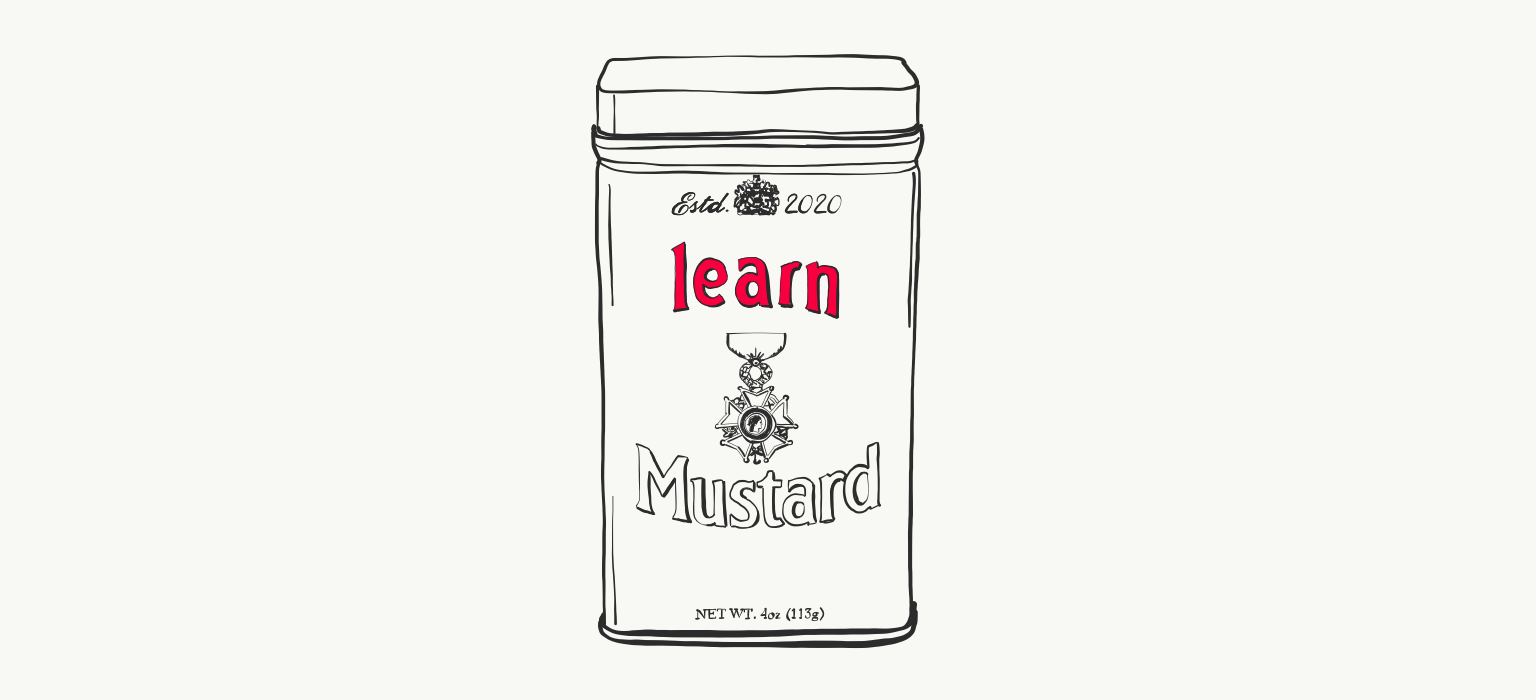
On learning with mustard
Beginning of last year, when my bimonthly travels to Berlin were still a possible experience, I have bought a little red school book. It’s amazing title, pocket-fitting manual-size and easy-to-read content have attracted me right away. «Teaching, for people who prefer not to teach» is boldly written on the red cover. A somehow radical, but rather universal and correct message of contemporary pedagogy for educators in the gig economy era, so I thought. I was even more intrigued, when I read the inside cover. The sentence I found, resonated deeply with what I was doing, what I am still trying to achieve:
“Learning for people who prefer not to be taught”
How many times do we hear complaints about students and their lack of interest, their too-short and further shrinking attention-span et cetera. I have always maintained the probably naive idea that students, especially on the level of Higher Education, do not want to be taught anything. On the contrary, they desperately want to learn. They want to explore, if possible understand, who they could be in correlation and connection with subjects, themes and projects a School (in partnership with the industry) may provide. Students want to apply these personal experiences to the very own world they live in. An academic institution should therefore be emphasizing and focusing on “Personal Learning Experiences” rather than “Teaching (delivering) a program” to a group of students that is enrolled in the same academic year.
The idea of a professor reading her latest published works aloud in front of a group of students or a industry-practitioner turned tutor showing a few powerpoint slides, while listening to his own voice, are therefore not of this perpetually changing and digital world anymore. They are “old-school”, but not in the cool or hip way.
“If everybody dared to be honest with each other all the time, our present school system would collapse very rapidly.”
THE LITTLE RED SCHOOL BOOK
I agree that going-old-school may sometimes, in very few occasions, make sense. But it can clearly never be a starting point or the sole solution of what teaching and learning is, or becomes. It must only be an exception. Professors, tutors or members of staff wanting to apply such uninspired delivery methods should be forced to submit an in-depth argumentation on how and why it seems to be the only adequate way to pass on information, knowledge, experience or soft-skills beforehand. I am quite sure that only the announcement of such “a preparative challenge” could on one hand raise the creative level and the research for new academic delivery methods. Make them more than just a subject during coffee-room chat, but a realistic and possibly innovative approach. On the other hand it could actually show that it is seldom the students who do not want to learn, or better, who don’t want to be taught. It may often be a notorious part of all-knowing faculty members living in a bubble of their own. A bubble usually distant from the students’ real world, where scarcity of employment or internships, cultural, social or lingual barriers and other challenges play a major role.
I can get no concentration, motivation & satisfaction?
Students and tutors must be able to unfold their emotional, as well as cognitive intelligence, especially when dealing with stress, overwhelming workloads, no jobs at all, failure and other distressing experiences. For both stakeholders to really be able to be satisfied learners, they need to be concentrated and motivated.
Concentration can be obtained with a certain security and tranquility, be it in terms of availability and organization of space and time, but also on a social or psychological level: Real learning happens in a culture of profound shared trust and liberty.
The biggest and probably most important source of motivation is to be able to get something done on our own, to understand on our won, and to reward ourselves with the fact that we got there on our own. Real intrinsic motivation is healthy. It is undoubtedly known, at least since last century’s mid Seventies, that extrinsic rewards can, on the other hand, have a diminishing effect on people’s motivation (Lepper, Greene & Nisbett 1973). It is therefore in every academic institution’s interest to install an everyday surrounding (physical and psychological), where intrinsic motivation is encouraged, supported and sincerely desired by everybody. Motivation may dangerously decline, when an educational system or institution drives students, but especially tutors, with steadily mentioned rules and regulations or imposed objectives. In order to be rewarded one needs to achieve them or live by them, ruining bog chunks of important self-determination. If one does unfortunately not achieve, or even worse abandon, the reward becomes a sanction (coded language for: you don’t get a degree. Or your contract will not get renewed). A academic system that only honors (or penalizes) it’s main stakeholders (students and tutors) with grades, feedback and possible job opportunities depreciates its core business: providing a fertile ground for learning to happen.
It devalues students’ and tutors’ genuine appetite and delight for “knowledge” to a sad means to an end. The institution may send the message that in their classroom, one learns not to explore or understand on one’s own, but to get a diploma, certification or to keep a job.
Learning with mustard and without socks
“We started to compile this manual because we became afraid that we were losing our ability to care. Once you’ve been “in education” for a while, it’s easy to become cynical. To talk about “my students” as if you owned them. We made this manual, because we got bored of providing content for the ubiquitous formats of hyper-individualized-tutorials, success-story-lectures. This manual encourages us to find out what happens if we don’t deliver. If we don’t give students the standard slide show, but instead make them take of their socks and rub their feet with mustard.”
(the little red schoolbook, 2018)
This is indeed a very radical and challenging proposal, one to be consumed carefully and with an open mind. On the other hand it could be a possible healthy approach to a thought process ready to happen and when started to be continued steadily. A permanent cycle of exchange, where all stakeholders, students, tutors as well as the school directors, are learning at all time. The creation of real life-long-learners.
References:
Bayerdoerfer, M., et al, A little red schoolbook. (2018), AND Publishing, Berlin.

